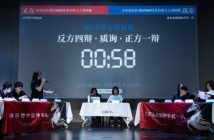Choosing the right school for your child is a pivotal decision that significantly shapes their educational journey. One crucial aspect to consider is the school curriculum, as it plays a fundamental role in determining what and how students learn.
There is a diverse range of curriculum options available at international schools throughout Beijing, including IB (International Baccalaureate), AP (Advanced Placement), English National Curriculum, a bilingual approach, a hybrid curriculum for the upper years and Montessori, Reggio Emilia, and a multiple intelligences approach for the younger years. Each comes with its unique approach and philosophy.
Parents need to be well-informed about these differences to align their child’s learning style, aspirations, and cultural preferences with the school’s educational framework. This understanding ensures that the chosen school not only imparts knowledge but also fosters holistic development, preparing students for a globalized world. In this educational landscape, where variety is abundant, discerning parents play a pivotal role in shaping their children’s educational experience by making informed choices about the curriculum that best suits their child’s needs and future aspirations.
With that said, be sure to make your way to Hilton Beijing on Mar 23 to attend this year’s Jingkids International School Expo (JISE) to get to know more about the international schooling options available in Beijing and attend this year’s PechaKucha-style presentations where a number of these schools will put their best foot forward in quick and concise presentations that won’t eat up your time.

Now let’s go over what curriculum options are available in Beijing.
Montessori
Age group: ECE/kindergarten
Created by Maria Montessori in the early 20th century, the Montessori approach is founded on the belief that every child should be respected as an individual and allowed to learn at their own pace within the prepared classroom environment. Children are usually taught in mixed-aged classrooms rather than in grades, and teachers and classroom assistants create individualized teaching and development plans that foster a child’s physical and spiritual learning.
Reggio Emilia
Age group: ECE/kindergarten
Reggio Emilia is an innovative approach to early years education in which children are seen as unique, creative individuals who embark on a journey into learning from the moment they are born as part of finding out about themselves, others, and the world around them. Students are active designers of their own educational development based on an environment where they are free to explore and ask questions.
Multiple Intelligences
Age group: All (primarily kindergarten/elementary)
The multiple intelligences approach to education is based on American developmental psychologist Howard Gardner’s proposition that there are multiple types of human intelligence that represent different ways of processing information, including logical-mathematical, linguistic, spatial, musical, and interpersonal. In terms of education, this can mean individualizing teaching to suit different students and teaching important materials in multiple ways. A multiple intelligences approach can be applied to a range of curriculums.
Bilingual Approach
Age group: All
Less of a curriculum in itself and more of an approach to teaching and instruction, many international schools in Beijing teach in both English and Chinese. The linguistic split varies between schools; it could be 50:50 or 30:70, and students could be taught by co-teachers in different languages or taught in different languages on different days. It is hoped that a bilingual approach will create well-rounded international individuals that are well-equipped to face a job market that often requires skills in multiple languages.
English National Curriculum
Age group: All
First introduced in 1988, the English National Curriculum sets out the content taught in most key subjects in primary and secondary schools across England and in many schools around the world. The curriculum is highly structured, divided into four “Key Stages” covering ages 5 to 16 (or six stages including ECE and post-16 A-Level examinations), but is also constantly undergoing development, giving it a high standard of learning. Most students in Beijing who follow this curriculum take IGCSE qualifications at 16 and may then choose A-Levels or the IB Diploma program.
International Baccalaureate
Age group: All
The International Baccalaureate (IB) has a 52-year history of high-quality international education. Taught at schools around the world and with the IB Diploma recognized by many of the world’s top universities, IB is a natural choice for many expat families. IB schools must be authorized and accredited to offer one or all of the following programs: the Primary Years Programme or PYP (ages 3-12), the Middle Years Programme or MYP (ages 11-16), and the Diploma Programme or IBDP (ages 16-19).
Hybrid Curriculum
Age group: All
This type of curriculum can be described as “the best of both worlds.” Some schools in Beijing apply a combination of the Chinese National Curriculum and internationally recognized curriculums such as the IB, English National Curriculum, or American Common Core Standards. This flexible approach to learning helps build students with a broad range of international education experiences. Core subjects from the Chinese National Curriculum may be taught, but the overall teaching approach may be more Western.
Images: Pexels




